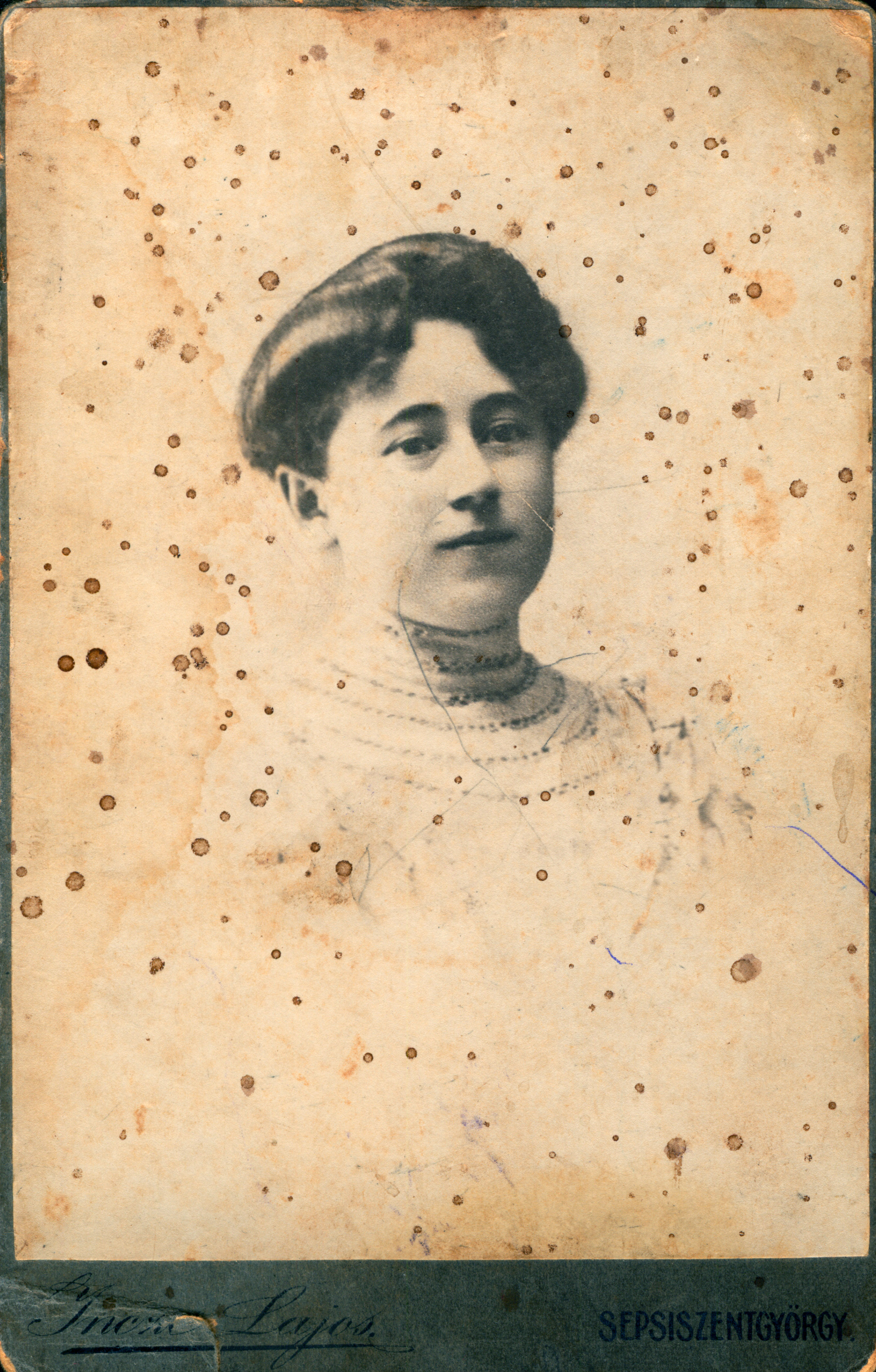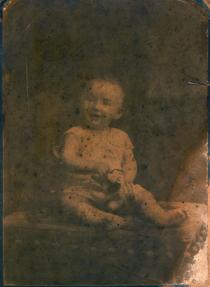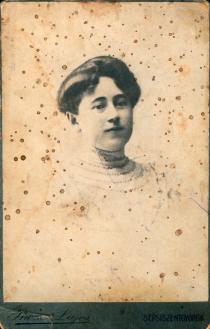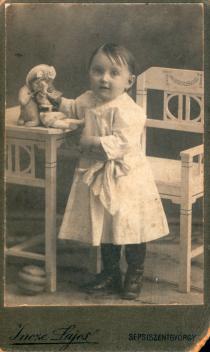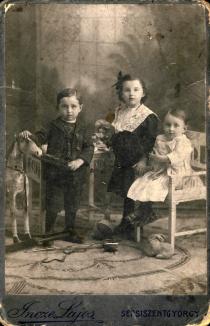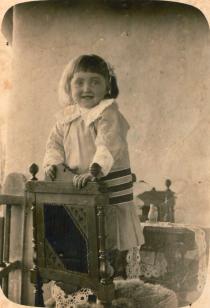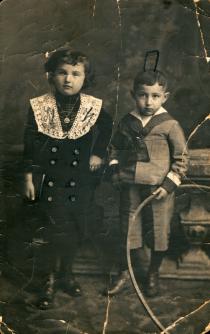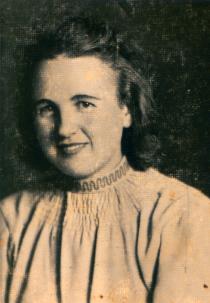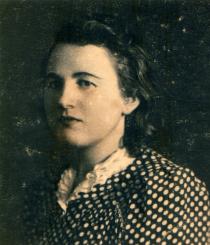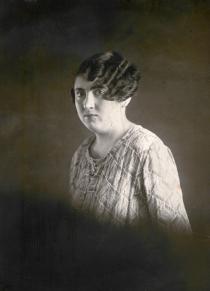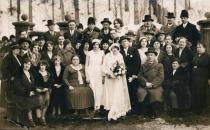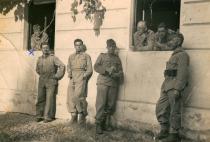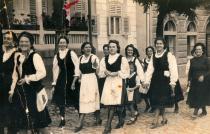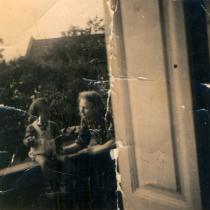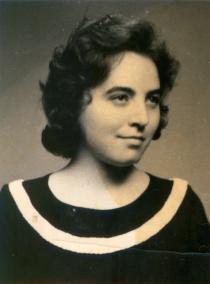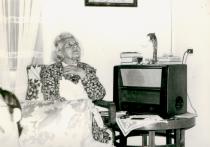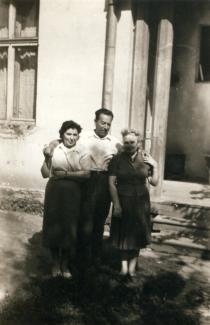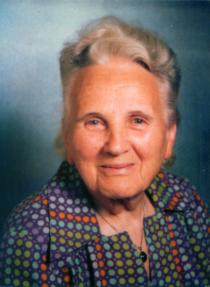This is my mother, Regina Molnar [nee Klein], at the age of twenty-two.
My mother was called Regina Klein, she was born from my grandmother's [Franciska Feder] second marriage [in 1989].
My mother attended the school of the French misses in Bucharest, from the age of 10 until she got 14.
After that she went to Paris as well to her brother, to Vilmos Sterbach, her sister, Berta Klein was already there.
She stayed there for quite a long time, she spoke French perfectly. That's why I'm Alice.
My mother was famous in the village [Nagyborosnyo] for her beauty, it was always her who played the leading lady.
She left two violins [after her death], because she learnt to play the violin.
I don't remember my mother, but the villagers told me how beautiful she was, and she was playing the violin splendidly.
And she could sing too, but I don't have a fine voice, I didn't inherit that. And my mother wrote poems too, she sent them to the women's magazine.
My mother was 20 years old when I was born, my father was 21. Within three years my mother had two more children.
My parents didn't have a peaceful life, because my father's younger sister, aunt Gizella, as there is always a boss among children, who gives orders, well, this sister of him was like that.
Though my father [Albert Molnar] was two or three years older.
I read one of my mother's letters, it was left at my grandmother, where she [my mother] wrote [to my father]: 'You listen to your black hearted sister.'
My paternal grandparents built a large house, with a shop in front, and a big bakery next to the house.
And my father was giving money there, so that his parents built whatever they wanted to.
My mother had a grudge against him for giving his earnings, when they already had two children.
And that fat aunt Gizella was stirring up my father, at least the letter said that she had told my father: 'You can get as many wives as you like, but parents you don't [they are irreplaceable], and you ought to help them.'
Well, it's nice to help one's parents, but not on the children's account.
My mother died when she was 23. A nice family, as one might call it, disintegrated within hours.
We lived in a village, in Nagyborosnyo, and my mother came in with the three children [to Sepsiszentgyorgy, to grandma] and with the domestic - of course we had a domestic, as there were three children.
And she died in two or three days. She must have had appendicitis, because they dissected her, and she was full of pus inside, I suppose they couldn't discover it then.
I met many people during my long life, whose parents died in a similar way.
Well, appendicitis wasn't known, and due to poultices it turned into peritonitis.
She left behind three little children. When she died, I was 3 years old, my brother one and a half and my sister six months old.
But I recall clearly some things from the age of three: a Christmas, that there was a Christmas tree on the table, and a chocolate roll big like this, it must have been of chocolate, because it was covered with silver, and I liked that.
And what I still remember, and I could cry of it even now, and I was crying for years, though I was only three years old, when my mother died.
I remember clearly that an auntie was holding my hand at the grave, she asked me something bent down to me.
I only remember that I told her: 'She will come home by the evening.'
I suppose she must have told me: 'Your mother is gone.'
I might have answered to this: 'She will come home by the evening.'
I tell you as it was, this sentence haunted me for years, and if it came to my mind, I cried, that I had been waiting for her to come in the evening, that...
